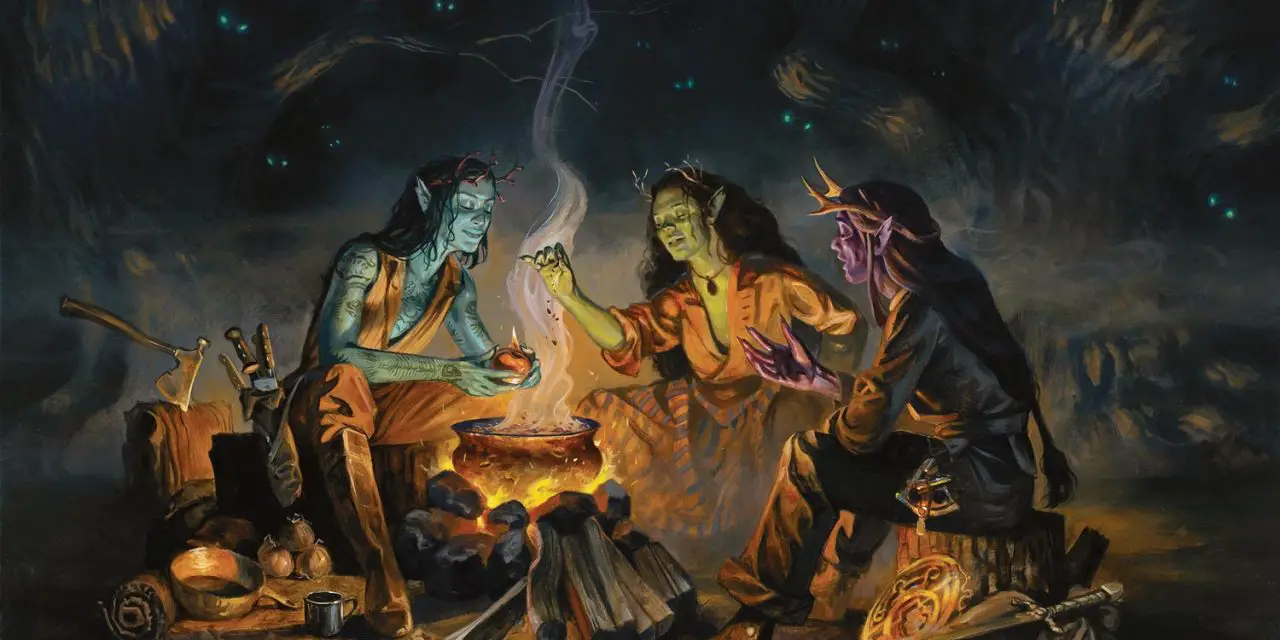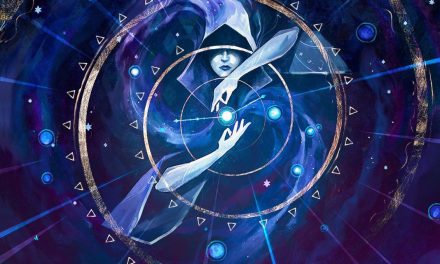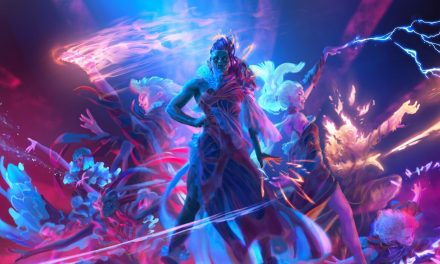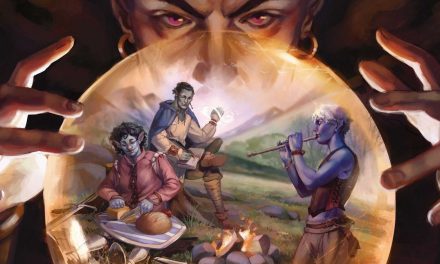The long-awaited release of Van Richten’s Guide to Ravenloft has introduced tons of grim and terrifying options to D&D 5e.
Perhaps the most fiendishly delightful of these options are the various Dark Gifts available to players. These gifts offer incredible new powers but come at a cost.
So don’t make a deal with that Dark Power just yet!
You’ll want to read this full guide to every Dark Gift in Van Richten’s Guide to Ravenloft! After all, you want to make sure you’re getting the best deal, right?
Full Guide to All Dark Gifts in Ravenloft 5e
So what are these Dark Gifts anyway?
The short version is that they are new abilities that your character gains to aid them on their adventure. These give your character new abilities that they otherwise might not have been able to learn.
However, the powers that grant you these dark gifts aren’t necessarily just doing so out of kindness. These abilities come with costs that can be quirky or annoying at least to character-defining.
The Dark Gifts in Van Richten’s Guide to Ravenloft lend themselves to creating characters who fit the horror themes within the Ravenloft setting. This includes those from Van Richten’s Guide as well as the Curse of Strahd adventure module. In addition to your characters normal personality, they begin to develop new flaws and ways of experiencing the world.
We’ll go into more detail about gaining Dark Gifts in a bit. For now, let’s dive in to the various Dark Gifts that you might be tempted with.
Echoing Soul
Whether being shared with a previous life or some other being entirely, your soul is no longer entirely your own.
This Dark Gift gives you additional knowledge, skills, and language as you pull from your shared soul’s experience. However, this soul can now influence your character in various ways.
When a character accepts this gift, the player rolls a d6 to determine which Soul Echo is present within them. It could be their own consciousness from a previous life, an inexplicable bond with another living being, or that they have become inhabited by some otherworldly entity.
Accepting the Echoing Soul gift earns you the following abilities:
- Channeled Prowess – Gain proficiency in two skills of your choice.
- Inherent Tongue – Speak, Read, and Write in one additional language of your choice.
The cost of accepting the Echoing Soul Dark Gift:
- Intrusive Echoes – Immediately after rolling a 1 on an attack roll, ability check, or saving throw, your other soul’s memories take over your perception and experiences. Roll a d6 and check the Intrusive Echoes table for your result. This might cause you to become charmed, frightened, or some other effect as you perceive things differently. However, it might allow you to reroll your natural 1 depending on the result you get on the Intrusive Echoes table.
| Intrusive Echoes | |
| D6 | Effect |
| 1 | Become charmed by one creature you can see (DM’s choice) for 1 minute or until it damages you. |
| 2 | Become frightened by one creature you can see (DM’s choice) for 1 minute or until it damages you. |
| 3 | Perceive another time or place around you until the end of your next turn. You are blinded to your actual surroundings. |
| 4 | Perceive a different time or place overlapped your surroundings. Your speed is halved until the end of your next turn. |
| 5 | You are overwhelmed by memories and sensations. You are incapacitated until the end of your next turn. |
| 6 | Reroll the ability check, attack roll, or saving throw that you just made. You must use this new roll. |
Gathered Whispers
You are haunted by some form of spirits. These might be your ancestors, the spirits of those you’ve slain, or simply just souls that can’t find rest.
The voices never cease and are unable to be heard by anyone else unless you allow them to speak through you. A creature that can see invisible creatures sees only quick glimpses of the spirits otherwise they can’t be seen by anyone but you.
If you take the Gathered Whispers Dark Gift, you gain these abilities:
- Spirit Whispers – You learn the Message cantrip and can cast it without components. The messages are delivered by the whispering spirits instead of your voice.
- Sudden Cacophony – When hit by an attack roll, use your reaction to let your spirits howl through you. Add your proficiency bonus to your AC potentially causing the attack to miss. Once this ability causes an attack to miss, you can’t use it again until you finish a long rest.
The spirits might be able to provide insights or omens regarding actions that you plan to take in the near future. However, they might also do more harm than good on some occasion!
As part of the cost of this gift, you also gain the following feature:
- Voices From Beyond – After rolling a 1 on an attack roll, saving throw, or ability check, the voices get too loud and overwhelming. Roll on the Voices from Beyond table to determine what happens. This can only happen once per short or long rest.
| Voices From Beyond | |
| D4 | Effect |
| 1 | Disadvantage on your next attack roll, ability check, or saving throw. |
| 2 | You are deafened for 1 minute as the voices overwhelm you. |
| 3 | Become frightened of the creature closest to you until the end of your next turn. If there are multiple creatures equally close to you, the DM chooses which one you’re frightened of. |
| 4 | Within the next 10 minutes, you can ask the spirits about the results of a specific course of action that you expect to take within the next 30 minutes. You receive an omen as if with the Augury spell as the spirits whisper it to you in a way that only you can hear them. |
Living Shadow
Taking this Dark Gift will give you the following abilities:
- Grasping Shadow – You learn the Mage Hand cantrip and can cast it without needing components.
- Shadow Strike – You can increase the range of a melee attack by 10 feet.
Upon accepting this Dark Gift, your shadow becomes animate and ever-present even if lighting conditions would otherwise prevent it.
From time to time, careful observers might notice your shadow not moving in sync with you. It seems to be undertaking random mundane tasks, but from time to time it might act out impulses of a darker nature.
I imagine a shadow seeming to sharpen a raise a knife towards another person’s shadow until you look at which point it quickly hides the blade behind its back as if nothing was happening. This gift can make for some great comedic moments while acting as both a benefit and hindrance.
As with the other Dark Gifts, you should be mindful of a hidden cost associated with this ability.
- Ominous Will – Your shadow has a will of its own and might help or hinder you or those around you.
When you roll a 1 on an attack, saving throw, or ability check, the next time you or a creature within 30 feet of you makes and attack roll, saving throw, or ability check, roll a d4.
If the number rolled on the d4 is odd, reduce the creature’s roll by the number rolled on the d4. If the number rolled on the d4 is even, increase the roll by the number rolled on the d4.
This can happen once per short or long rest.
Mist Walker
Within the Ravenloft setting, the Mists that surround the Domains of Dread have a tendency to lead wanderers astray and towards certain doom. Whether through skill or luck (probably both), you have learned how to navigate the Mists and avoid their grasp.
Accepting the Mist Walker gift gets you the following abilities:
- Misty Step – You can cast the Misty Step spell once per long rest without using a spell slot.
- Mist Traveler – When you are attempting to traverse the Mists to reach a specific Domain of Dread, you are treated as if you have a Mist Talisman for that domain. You must know the name of the domain to safely arrive there, but you don’t need to have previously been there. A domain’s Darklord may still close the domain’s borders to you.
Be wary, though. While you might be familiar with navigating the infamous Mists of the Ravenloft setting, there is another side to this Dark Gift.
- Poisoned Roots – When you finish a long rest, the world around you within a 10-mile radius begins to leech away at your vitality. You can safely remain in the area for a number of weeks equal to your Constitution modifier (minimum of 1 week). After that, you must make a DC 15 Constitution saving throw each time you finish a long rest in the area. On a failure, you gain 1 level of exhaustion that can’t be removed until you leave the area.
Second Skin
You have another form that others likely have not seen. It could be fiendish or celestial, something constructed of metal, a mixture of humanoid and beast, or something else entirely.
This second form reveals some kind of hidden or suppressed nature within you. The devout cleric might conceal some kind of fiendish form. The seductive bard might have a second form of some kind of vaguely-humanoid shaped slime.
This Dark Gift gives you the following abilities:
- Transformation – You gain a second form and can cast the Alter Self spell to appear in that form. Casting this spell in this way doesn’t use a spell slot and can be done once per long rest.
Cost
- Involuntary Change – Some specific circumstances may activate this ability. When presented with such a circumstance, you must make a DC 15 Charisma saving throw or use your action to cast Alter Self to take your second form.
Symbiotic Being
You are the host to another being. It appears somewhere on your body and relies on you for its survival. In return, it gives you knowledge and assistance in some… peculiar… ways.
However, this being still has its own goals and motivations. If you aren’t assisting it in its pursuits, it might go to great lengths to convince you to help it. Whether the symbiote tends to be aggressive or more relaxed is up to the DM and the result of rolling on the Symbiotic Agenda table.
This is possibly the most unique of the Dark Gifts in that it has the potential to completely alter how a character is played. While the Symbiotic Being won’t likely go so far as to destroy its host, it will do what it needs to do to further its own goals if those don’t seem to align with its host’s.
Taking the Symbiotic Being gives you the following features:
- Entwined Existence – Your symbiote has its own Intelligence, Wisdom, and Charisma scores. It speaks, reads, and understands two languages: one that you speak and one that makes sense for its nature. With the being’s guidance, you gain proficiency in one of the following skills of your choice: Arcana, Deception, History, Intimidation, Insight, Investigation, Nature, Religion, Perception, or Persuasion.
- Sustained Symbiosis – The symbiote wants to protect its host (i.e. you) as possible. When you fail a saving throw, you can have the symbiote expend one of your Hit Dice to roll it and add that number to your saving throw. If you use this on a Death Saving Throw, you succeed and regain 1 hit point regardless of what is rolled on the d20. Once you succeed on a save with this ability, it can’t be used again until you finish a long rest.
- Symbiotic Agenda – This being has its own goals and expects you to help it achieve them. Work with your DM to determine the being’s personality and temperament (how patient is it?). If you have an opportunity to advance the symbiote’s agenda and don’t, the symbiote can forc you to make a Charisma saving throw (DC = 12 + symbiotes Charisma modifier) or be charmed by it for 1d12 hours.
Touch of Death
Your touch causes great pain to others.
On the plus side, this is great for dealing with enemies. On the other hand, the effect extends to anyone you touch. I get some major “Rogue from X-Men” vibes off of this ability which can possibly serve as a bit of inspiration for your character.
- Death Touch – As an action, you make an unarmed strike. This deals an additional 1d10 necrotic damage on a hit. Damage increases by 1d10 at levels 5 (2d10), 11 (3d10), and 17 (4d10.)
- Inescapable Death – When hitting a target with an attack roll that deals necrotic damage, you ignore any of your targets’ resistance to that necrotic damage.
- Withering Contact – If you are grappling or being grappled by a creature at the start of your turn, that creature takes 1d10 necrotic damage.
Exactly how this touch manifests is up to you. Plants and insects around you might die as a result of the necrotic aura around you or your touch may leave scarring marks of whatever being is behind such a power.
This can create some very interesting roleplaying moments and is just as sad as it is powerful.
Watchers
There’s something particularly terrifying about creatures that just… watch you… No interactions or words – just an ever-present gaze upon you.
As a result of this Dark Gift, you are constantly under the surveillance of small shadowy creatures. While they may seem to pass off as whatever creature they are disguised as, there is a general feeling of maliciousness behind their eyes. You can never get rid of them as they stay just out of reach.
Rolling on the Watchers table when you take this Dark Gift, these beasts may take the form of birds, insects, or cats. However, they might instead be glowing orbs, animated objects, or floating eyes.
The Watchers Dark Gift gives you the following abilities:
- Borrowed Eyes – For 1 hour, you can influence the presence that is guiding the watchers. This gives you advantage on Intelligence (Investigation) and Wisdom (Perception) checks and you can’t be blinded. You can do this once per long rest.
- Dread Presence – When making Charisma (Deception, Performance, or Persuasion) checks against creatures that can see the Watchers, you have disadvantage. Additionally, you have disadvantage on saving throws against the Scrying spell.
You can attempt to hide the watchers. It takes 1 minute of work and a DC 15 Charisma (Animal Handling) check. Succeeding on the check suppresses your Borrowed Eyes and Dread Presence features for 1 hour. You can only successfully do this once per long rest.
Also Check Out: The 6 Best Books That Every DM NEEDS to Read!
Gaining a Dark Gift in D&D 5e
Dark Gifts are largely intended to be taken at character creation. They guide the character’s story and can be a powerful hook to bring them into your campaign.
However, characters don’t have to take these gifts at character creation. As the story continues, they might be approached by the Dark Powers with offers of a bargain.
In exchange for something, these Dark Powers grant a Dark Gift to the character. Thematically, focusing on the benefits of the Dark Gift while allowing the downside to wear on the character is a common and fun trope that the Dark Powers often use. Fully disclose the ups and downs of the gift, but really “sell” the positive.
These bargains might be struck while the character dreams, is standing watch alone, or finds themselves in a frozen moment of time right before they draw their last breath.
If you’re playing in the Ravenloft setting, Dark Lords are also able to impart Dark Gifts upon the characters. It might be necessary to take such a gift if that’s the only way the Dark Lord will speak with the party, for example.
It’s up to you when and if a Dark Gift is accepted. However, it does (and should) represent a major moment in your character’s story. Do they embrace this gift and the powers that it gives them or do they feel that they can renegotiate at a later time to rid themselves of the negatives?
Homebrewing Your Own Dark Gifts
The 8 options for Dark Gifts presented in Van Richten’s Guide to Everything are just a starting point.
You might look at the Supernatural Gifts in Mythic Odysseys of Theros and tweak them to have drawbacks and bonuses appropriate to your campaign.
Of course, you can also just completely homebrew your own Dark Gifts.
These gifts should be thematic with a sizeable bonus and clear mechanics but some kind of drawback that is meant to terrify or haunt the character.
A character might gain the ability to protect themselves with a wreath of flame or throw fire bolts but be tasked with never allowing a candle in their position to go out. Not only does that make certain situations trickier (like trying to climb a windy mountain or sneak through a creature’s lair undetected), but it lends itself to a type of obsessive curse for the character.
What powers might tempt players into accepting a Dark Gift regardless of the cost?
Conclusion
Dark Gifts are great for really getting characters onboard for a horror campaign, though they may manifest in campaigns that aren’t exclusively horror.
Which of these do you like the most? I’m personally torn between the Living Shadow and Second Skin gifts.
Have you incorporated any Dark Gifts in your campaign?
Let’s talk in the comments!
Check out my full review of Van Richten’s Guide to Ravenloft for all kinds of fiendish fun in your D&D game.
Want to make your horror campaign truly unforgettable? Check out my guide to running horror in D&D!









